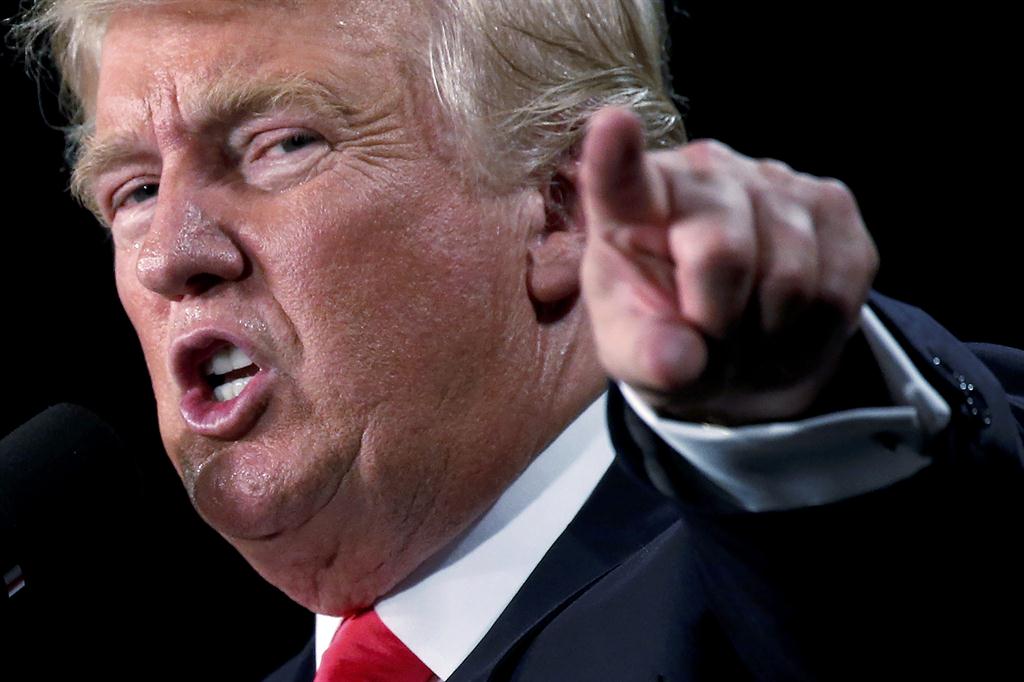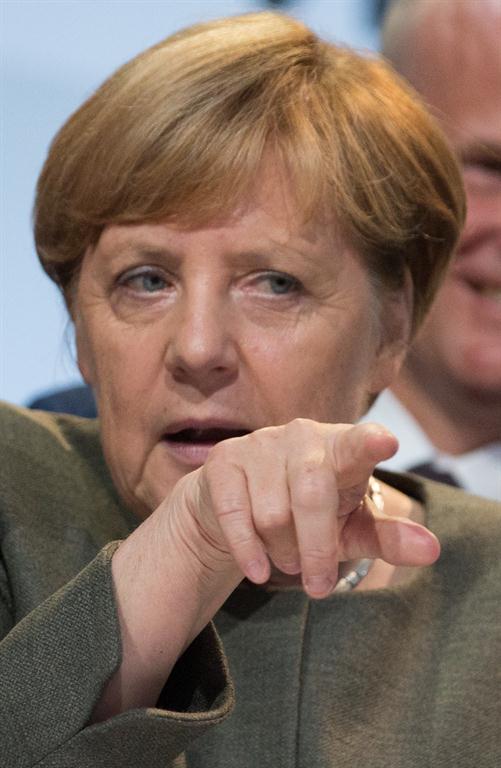World in brief
German business confidence down
Confidence among German businesses eroded slightly in September, a regular survey published yesterday found, reflecting uncertainty ahead of a general election on Sunday that has left Chancellor Angela Merkel facing tricky coalition talks.
The Munich-based Ifo institute's closely-watched business confidence index fell to 115.2 points this month, a 0.7-point drop compared with August and short of predictions from analysts surveyed by Factset.
"Companies were less satisfied with both their current business situation and their short-term outlook than in August," Ifo chief Clemens Fuest said.
"Germany's economy nevertheless goes into the new legislative period with a strong tailwind," he added. – Nampa/AFP
More US economists see risks
Amid uncertainty over President Donald Trump's growth agenda, US economists increasingly are worried about risks to the economy, though they see little chance of a recession near term, according to a survey released yesterday.
The National Association for Business Economists quarterly survey showed little change in the forecasts compared with June in key areas such as economic growth, which was projected at 2.2% in 2017 and 2.4% in 2018.
But the September survey of about 50 economists showed 48% believe the risks to the economy are weighted to the downside, indicating chances for an economic slowdown, while 43% see the risks tilted to the upside, meaning growth could outpace forecasts.
That is a shift from June, when upside risks outweighed downside risks by 60 to 36%. – Nampa/AFP
Japan’s Abe announces stimulus package
Japanese Prime Minister Shinzo Abe yesterday ordered his cabinet to compile new economic stimulus measures in a package worth around 2 trillion yen (US$17.80 billion) by the end of the year.
Abe said the package should focus on subsidising education, child-care costs, and on boosting corporate investments to improve productivity.
Abe was expected to announce a snap election later yesterday to take advantage of improved ratings and disorganised opposition parties, and the stimulus package could be a way to lure voters during the election campaign. – Nampa/Reuters
Siemens, Alstom on brink of rail merger
France's Alstom and Germany's Siemens have a deal ready to sign to merge their rail businesses in the face of Chinese competition, German business daily Handelsblatt reported yesterday.
The two groups have overcome past reservations about a joint venture with a "balanced agreement acceptable to both sides," Handelsblatt wrote citing "insiders" familiar with the deal.
An Alstom-Siemens tie-up would bring together the engineering giants that make their countries' flagship high-speed trains, including France's world-famous TGV.
Siemens brings in 7.8 billion euros of revenue annually from rail, while Alstom boasts sales of 7.3 billion euros. – Nampa/AFP
Confidence among German businesses eroded slightly in September, a regular survey published yesterday found, reflecting uncertainty ahead of a general election on Sunday that has left Chancellor Angela Merkel facing tricky coalition talks.
The Munich-based Ifo institute's closely-watched business confidence index fell to 115.2 points this month, a 0.7-point drop compared with August and short of predictions from analysts surveyed by Factset.
"Companies were less satisfied with both their current business situation and their short-term outlook than in August," Ifo chief Clemens Fuest said.
"Germany's economy nevertheless goes into the new legislative period with a strong tailwind," he added. – Nampa/AFP
More US economists see risks
Amid uncertainty over President Donald Trump's growth agenda, US economists increasingly are worried about risks to the economy, though they see little chance of a recession near term, according to a survey released yesterday.
The National Association for Business Economists quarterly survey showed little change in the forecasts compared with June in key areas such as economic growth, which was projected at 2.2% in 2017 and 2.4% in 2018.
But the September survey of about 50 economists showed 48% believe the risks to the economy are weighted to the downside, indicating chances for an economic slowdown, while 43% see the risks tilted to the upside, meaning growth could outpace forecasts.
That is a shift from June, when upside risks outweighed downside risks by 60 to 36%. – Nampa/AFP
Japan’s Abe announces stimulus package
Japanese Prime Minister Shinzo Abe yesterday ordered his cabinet to compile new economic stimulus measures in a package worth around 2 trillion yen (US$17.80 billion) by the end of the year.
Abe said the package should focus on subsidising education, child-care costs, and on boosting corporate investments to improve productivity.
Abe was expected to announce a snap election later yesterday to take advantage of improved ratings and disorganised opposition parties, and the stimulus package could be a way to lure voters during the election campaign. – Nampa/Reuters
Siemens, Alstom on brink of rail merger
France's Alstom and Germany's Siemens have a deal ready to sign to merge their rail businesses in the face of Chinese competition, German business daily Handelsblatt reported yesterday.
The two groups have overcome past reservations about a joint venture with a "balanced agreement acceptable to both sides," Handelsblatt wrote citing "insiders" familiar with the deal.
An Alstom-Siemens tie-up would bring together the engineering giants that make their countries' flagship high-speed trains, including France's world-famous TGV.
Siemens brings in 7.8 billion euros of revenue annually from rail, while Alstom boasts sales of 7.3 billion euros. – Nampa/AFP






Kommentaar
Republikein
Geen kommentaar is op hierdie artikel gelaat nie